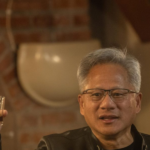This gap is evident in the current brouhaha over trade and tariffs, particularly in the two opposing camps: those responsible for formulating the administration’s trade agenda (Mr. Trump and his cabinet) and those critiquing it (primarily commentators and journalists). The result of this dynamic is not only that the Trump administration has enacted wrongheaded trade policies, but also that the opposition to these policies is largely ineffective or irrelevant. Both camps are engaged in do-it-yourself economics.
The misconceptions emanating from both camps stem from one common oversight: Neither Mr. Trump nor his detractors have familiarized themselves with the savings-investment identity, a basic yet crucial mechanism that governs the magnitude of a country’s trade balance. Indeed, by definition, a country’s trade balance is governed entirely by the gap between its domestic saving and domestic investment. If a country’s domestic saving is greater than its domestic investment, like China’s, it will register a trade surplus. Likewise, if a country has a savings deficiency, like the United States, it will register a trade deficit. The United States’ negative trade balance, which the country has registered every year starting in 1975, is “made in the USA,” a result of its savings deficiency. To view the trade balance correctly, the focus should be on the domestic economy.
Second, the trade deficit is not necessarily harmful. It instead appears to be a privilege extended to Americans by foreigners willing to invest in U.S. assets. This is a symbiotic relationship: Americans get cheap access to capital, while foreign governments and institutions get a safe place to park their money and earn a return.
Both Mr. Trump’s cabinet and those criticizing his policies have a fundamental misunderstanding of what drives the U.S. trade deficit. As a result, the trade debate has turned into a futile filibuster, highlighting the dangers of do-it-yourself economics. It’s time to go back to the basics.
Steve H. Hanke is a professor of applied economics at the Johns Hopkins University and the author, with Leland Yeager, of Capital, Interest, and Waiting. Caleb Hofmann is a research scholar at the Johns Hopkins Institute for Applied Economics, Global Health, and the Study of Business Enterprise.
The opinions expressed in Fortune.com commentary pieces are solely the views of their authors and do not necessarily reflect the opinions and beliefs of Fortune.
Read more:









